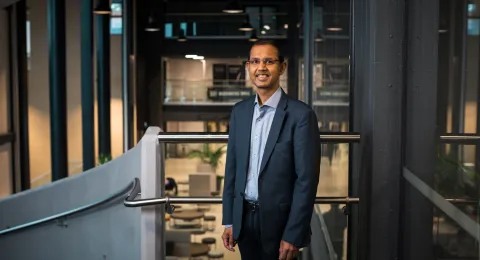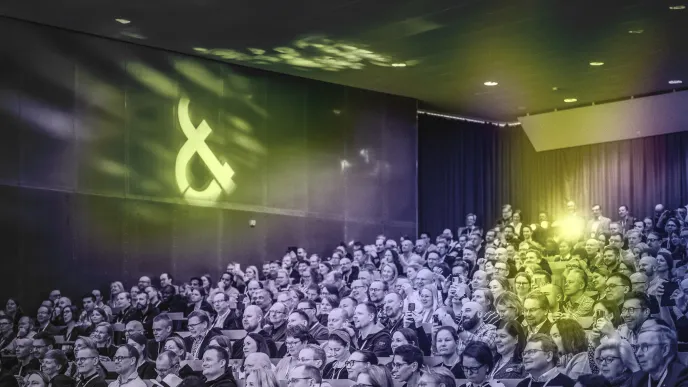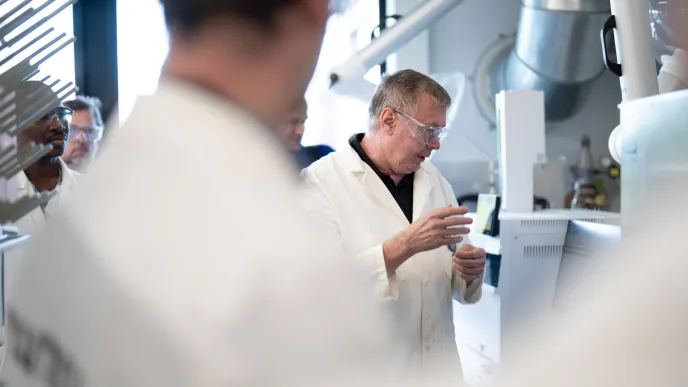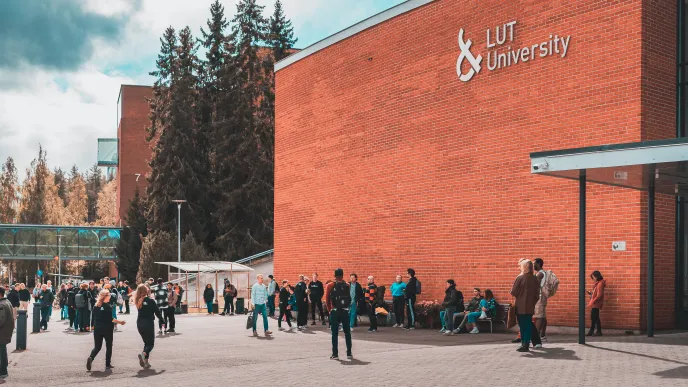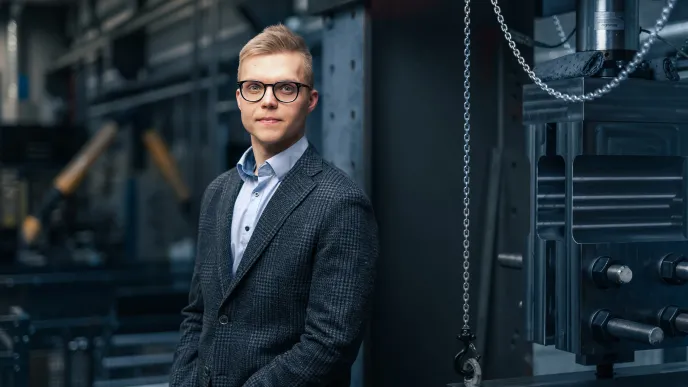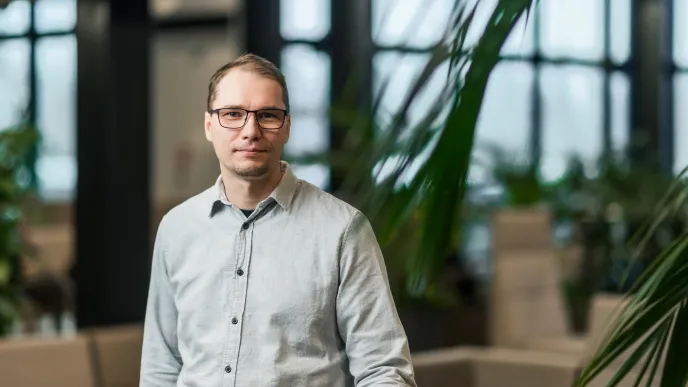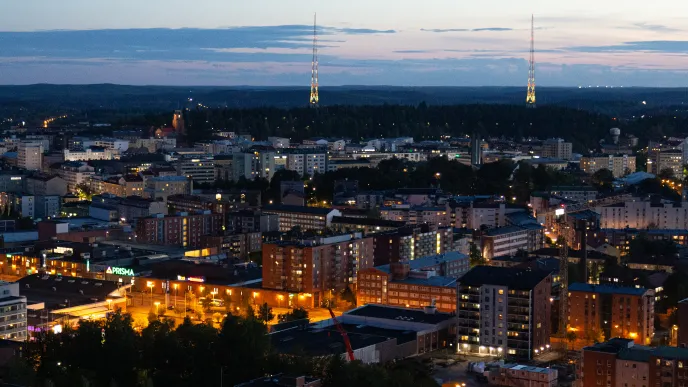Professor Amit Bhatnagar from LUT’s Department of Separation Science was named as one of the Highly Cited Researchers in 2022. Professor Bhatnagar’s research group is developing nature-based solutions for treating wastewater and investigating ways to close the water loop by following the principles of circular economy and sustainable development.
1. Congratulations for being one of the Highly Cited Researchers in 2022. What do you think is the secret of your success?
Thank you, it is truly a wonderful honor for me to be selected as one of the Highly Cited Researchers in the world for the past five consecutive years.
As there is no shortcut to success, I believe that working hard and having passion for my work are the secrets of my success. I am punctual, focused, and good at meeting my set deadlines. I am also ambitious about my career. I think all these qualities have helped me over the years to reach my career milestones.
Of course, the continuous support from my wife, family, research collaborators, and my research team is equally important. And last but not least, I am not afraid of failures as they teach you how to achieve success by learning from your mistakes.
2. What do you do at LUT?
I am a Professor at the Department of Separation Science, and Head of the Master’s Program in Water Technology at LUT. My main responsibilities at LUT include teaching and research as well as supervising students and applying for research funding.
My research focuses on algal biorefinery, sustainable water treatment solutions using bio-nanomaterials, and resource recovery. My research group at LUT is developing nature-based solutions for wastewater treatment and investigating potential ways to close the water loop by following the principles of sustainable development and circular bioeconomy. We are seeking to unravel the full potential of microalgae-based system for wastewater treatment, CO2 biofixation, nutrient recovery, and the production of value-added products from algal biomass.
My research group also actively investigates the synthesis and application of biochar and nanocellulose produced from biomass waste streams for the removal of different aquatic pollutants e.g., toxic heavy metals, pharmaceuticals, and other emerging pollutants. Besides these, we also study the application of nanomaterials and nanocomposites in water treatment.
3. When it comes to science, why do you think international cooperation is important?
In my opinion, complex problems can be effectively solved via international collaboration. Researchers, scientists, and academicians are far more likely to make significant breakthroughs through international cooperation because collaborations nurture different perspectives, know-how, and valuable resources, and can result in the creation of novel ideas that can be applied to address the global challenges.
4. What are the things you enjoy most about your job?
In my current employment at LUT, I enjoy the work-life balance, flexibility, the helpful and friendly attitude of my colleagues, and the possibility to collaborate with colleagues at LUT from different backgrounds and cultures.
Moreover, my work gives me a feeling that through my research I can make a positive societal impact. The world needs sustainable solutions for water, energy, and food. Because my research focuses on water treatment, I am optimistic that I and my research team can contribute significantly to addressing these issues.
5. How did you end up leading an academic career?
Since my childhood, I have closely witnessed the problems that people face in India when there is no running tap water at homes for hours and when it is necessary to boil, or filter tap water before drinking. Over the decades, the water crisis has worsened around the globe and India is already facing its worst water crisis ever.
Therefore, after my graduation, I wanted to pursue Ph.D. focusing on a water-related problems where I could contribute to solving the water pollution crisis. Pursuing this trajectory as an early-stage researcher, I realized that this way, I can’t only help in addressing this issue, but also make my contribution count on international level.
In my PhD, I successfully utilized solid industrial waste of steel and fertilizer industries in treating the wastewater from dyes and paper and pulp industries. Afterwards, I conducted postdoctoral research in several countries on water-related topics. In 2014, I accepted a faculty position at the University of Eastern Finland (UEF) and from August 2020 onwards, I’ve been working and leading my own research group at LUT.
6. What is your greatest career accomplishment so far?
The inclusion of my name in the prestigious list of Highly Cited Researchers is my greatest career accomplishment so far. I have no influence on the citations of my research, so it is totally up to the scientific community to cite or not to cite my work. Therefore, I feel that this is the biggest success I have achieved so far.
Another great accomplishment is receiving a four-year project funding for my research from Academy of Finland in 2022 – after many failed attempts.
7. Who or what inspires you most?
I am highly inspired by the former President of India, Dr. APJ Abdul Kalam, and Professor Stephen Hawking. If you look closely at the lives they lived, you notice that against all odds, you can still be successful and fulfill your dreams, if you are determined, focused, and work hard to achieve your goals.
8. What would you like to study if anything was possible?
There are several new computational software on my to-study list that I wish to use in my research. Also, if I had sufficient time, I would like to learn Finnish as it would help me to connect better with my Finnish colleagues, students, and the local people outside LUT.
9. How do you balance your work and personal life?
Honestly, I just follow some simple rules:
- I generally plan my important tasks, so I don’t have to panic at the last moment. I prioritize my tasks and finish them accordingly.
- In between my work, I try to take small breaks. I often go for coffee breaks with my students, and we discuss general things as well, other than work-related issues.
- I prefer not to work late nights, so I can get enough sleep, and I can recharge and refresh myself for the next day’s tasks.

